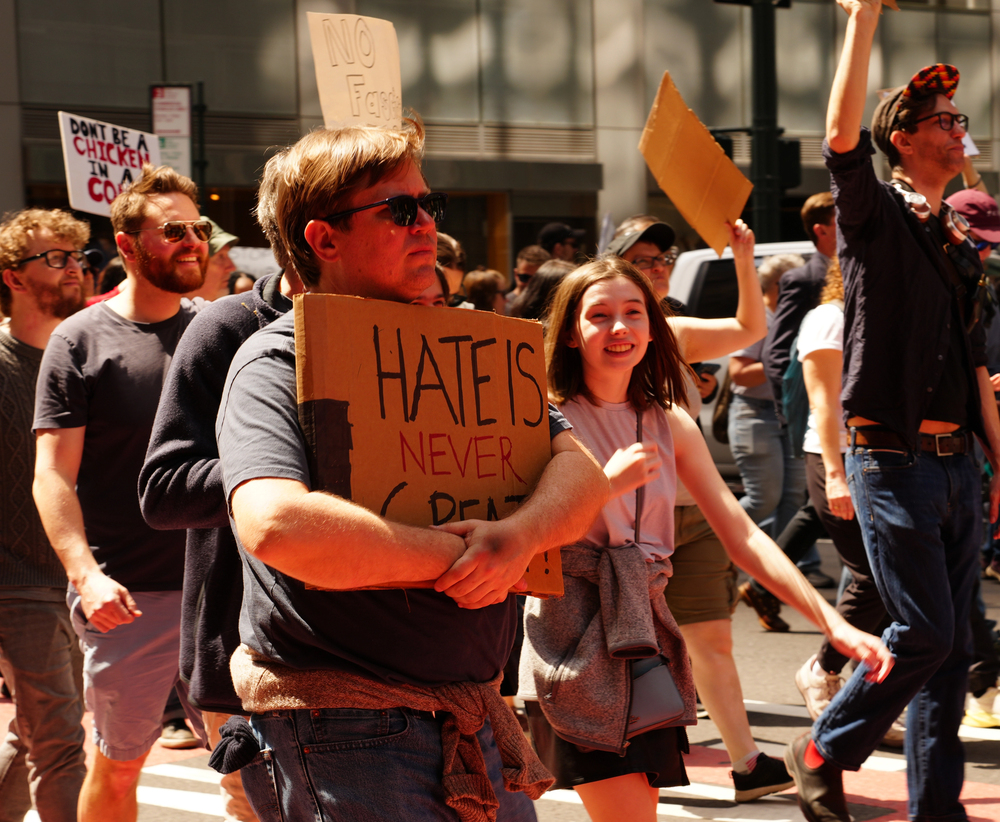For those on the left side of the political spectrum, capitalism and far-right ideology are often seen as grounded in hatred and dehumanization. According to some psychologists, however, hatred is a broadly human emotion, and political progressives must learn to work through and harness their own capacity for hatred rather than deny it.
In his recent article, Problems of Hate and Emancipation: Some Considerations for Liberation Psychology, published in the Journal of Theoretical and Philosophical Psychology, liberation psychologist Nick Malherbe reflects on this necessity for political progressives to address hatred in order to avoid being consumed by it.
Malherbe also sees a place for psychologists in progressive political movements as facilitators of working with and through hatred, and even of helping direct it toward political structures rather than people. In this latter sense, he explores the question of whether hatred has a place in progressive politics.
“The building of collective emancipatory political power requires that comrades, at different moments, acknowledge, challenge, embrace, and work through hatred. Hate is thus to be engaged in and for emancipatory political projects rather than hateful ones. Liberation psychology, I insist, can be of value to psychopolitical work of this sort,” writes South African liberation psychologist Nick Malherbe.
Malherbe’s work adds to a growing body of scholarship that challenges the dominant view of mental life as something to be regulated through personal adjustment and emotional restraint. Instead, emotions like hatred, often treated as pathological or antisocial, are here understood as potentially meaningful responses to histories of injustice that may carry within them the seeds of repair if held with ethical and psychological complexity.
This perspective resonates with calls to move beyond the therapeutic management of discontent and toward a psychology oriented by democratic struggle, ecological responsibility, and relational forms of well-being. Whether exploring the psychological dynamics of authoritarianism, the emotional toll of climate collapse, or the fragmenting pressures of neoliberalism, this approach to the study of the mind insists that inner life is shaped through—and can speak back to—the world.
















I learned in freshman year of college to not bother hating others. I had volunteered to drive a freshman corridor member to the airport, since I was an alternative student senator, so was one of the only people in my freshman corridor who was allowed to have a car.
She swore horribly as we drove to the airport, and showed less than zero respect to me, for what I volunteered to do for her. I hated her for one week.
But she didn’t care, so I realized hating anyone was a waste of my time and energy.
“hatred is actually one aspect of love.” Maybe, or hate is based upon jealousy, et al. Nonetheless, the opposite of love is fear, not hate, so have no fear.
“Furthermore, Malherbe believes that there may be a foundational role for hatred in progressive politics, specifically a radical hatred that is a ‘hatred of systematized hatred.'”
And we do have bad systems in Western civilization, like the DSM deluded psych industries.
“He mentions cases in progressive political circles where transphobia, homophobia, sexual assault, and other interpersonal problems emerge. These forms of hatred are intrapersonally, interpersonally, and politically destructive.”
Well, as the mom of a gay and trans child, both of whom I love, but my trans child currently won’t speak to me, and seemingly hates me. I hope he can work through his, and his significant other’s, hatred of me. Please pray for my family.
Psychiatry and psychology really went in the wrong direction, I don’t personally believe DSM deluded psychiatry is savable, and needs to be weaned out of existence, once they’ve cleaned up the appalling mess they’ve created. And I believe the Jungians are the only hope the psychologists have in saving any possible respectability for their industry.
Report comment
I hate the way psychologists monetize common sense.
Report comment